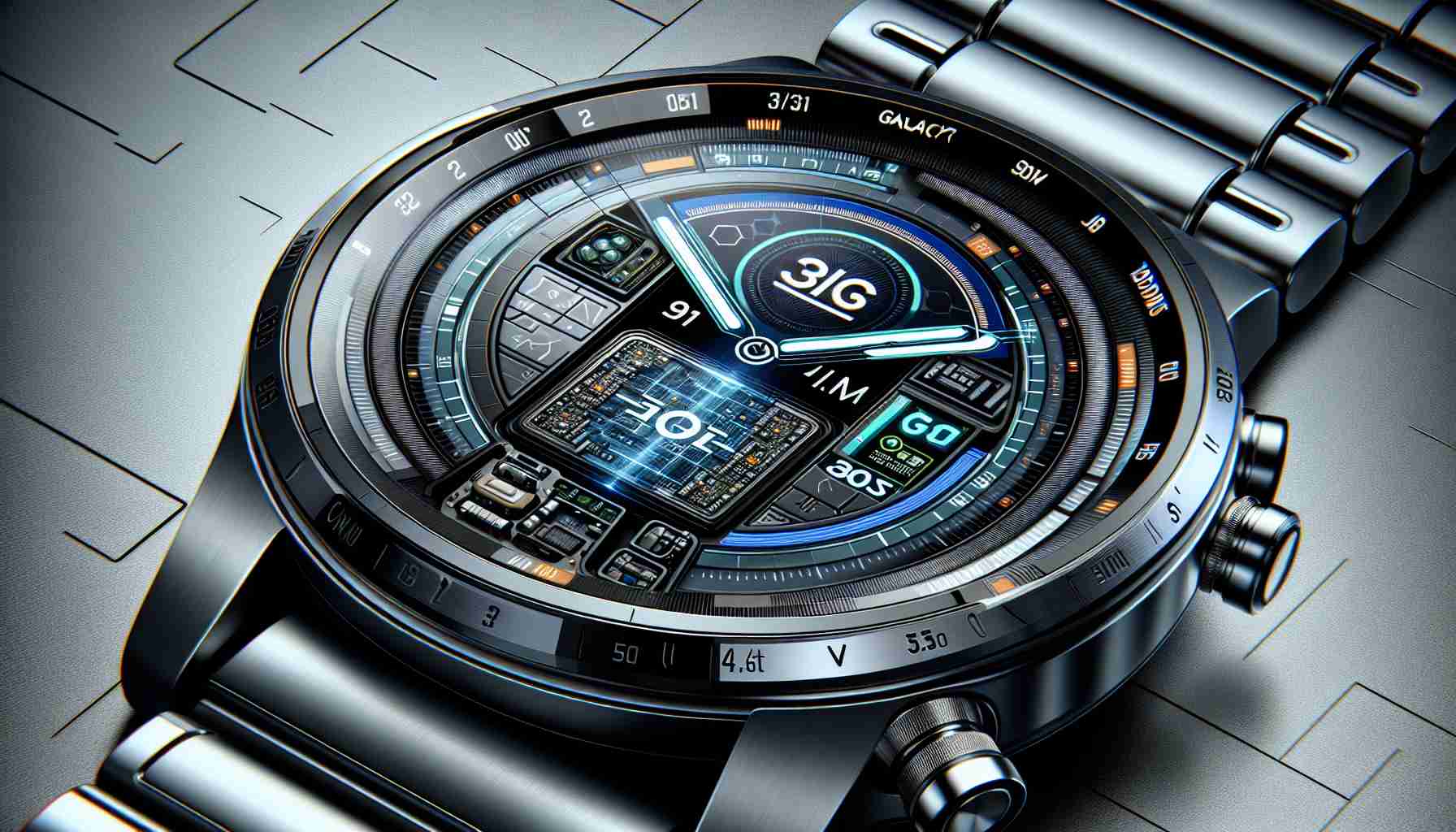Samsung to Launch Next-Gen Smartwatch with Enhanced Chip Efficiency
In a significant boost to its wearable technology, Samsung is poised to release the Galaxy Watch 7 featuring an advanced 3nm processor, marking the company’s first device to benefit from this cutting-edge production process. Sourced from the Korea Economic Daily, the Exynos W1000 application processor is set to spearhead the new lineup and promises to elevate the performance of Samsung’s forthcoming smartwatch.
The Evolution from the 5nm to 3nm Process Node
A leap from the previous Galaxy Watch, which housed a 5nm chipset, Samsung’s latest innovation, the Exynos W1000, offers a 20% improvement over its predecessor in both power efficiency and computing performance. The shrink in the process node not only refines the chipset size but also permits an increased transistor density, propelling the device’s capabilities substantially forward.
Enhancing Market Competitiveness
With the Exynos W1000 at its core, the Galaxy Watch 7 is set to rival the market dominance of the Apple Watch Series 9, which operates on an S9 chip derived from the A16 SoC. The new Samsung chipset’s enhanced performance characteristics are integral to narrowing the market share gap with Apple, which currently leads the global smartwatch sector by a significant margin.
Eyes on Samsung’s Next Big Unveiling in Paris
Anticipation is building for Samsung’s next Unpacked event, scheduled for July 10th in Paris, coinciding with the fervor of the Summer Olympics. The tech giant plans to capitalize on the global spotlight to introduce a lineup of devices, including the much-anticipated Galaxy Z Fold 6, Galaxy Z Flip 6, Galaxy Ring, and the feature-rich Galaxy Watch 7, all slated to reinforce Samsung’s position in the cutting-edge wearable market.
Benefits of 3nm Technology in Smartwatches
The transition to a 3nm process technology represents a significant advancement in semiconductor manufacturing and brings numerous potential benefits. For smartwatches like the Galaxy Watch 7, a 3nm processor like the Exynos W1000 is likely to offer:
– Improved Battery Life: As processors become more power-efficient, devices like smartwatches can run longer on a single charge. This is crucial for users who rely on such devices for daily activities and health tracking.
– Enhanced Performance: A processor with more transistors can perform more calculations at once, leading to smoother, faster experiences and the ability to handle more complex applications.
– Greater Functionality: With increased performance and efficiency, future smartwatches could incorporate features previously limited to larger devices like smartphones.
Key Questions and Answers:
– What is a 3nm processor technology? A 3nm technology refers to the manufacturing process of semiconductors with a nanometer-scale node. It typically allows for smaller, more energy-efficient, and higher-performing chips compared to larger nodes.
– How does the Galaxy Watch 7’s 3nm processor compare to the competition? Samsung’s Exynos W1000 is positioned against Apple’s S9 chip technology, promising improvements in both power efficiency and computing performance that may bring it closer to or surpass the market leader.
Key Challenges and Controversies:
One of the main challenges in producing 3nm technology is the considerable investment in research, development, and new manufacturing equipment, which makes it a costly endeavor. Furthermore, the complexities of smaller manufacturing processes often introduce technical challenges that can delay production. As for controversies, while not specific to the Galaxy Watch 7, the discussion around the environmental impact of constantly advancing technology and the creation of electronic waste is relevant.
Advantages and Disadvantages:
– Advantages: Enhanced computing performance and energy efficiency; potential for longer battery life and new features; competitive advantage over devices with older chip technologies.
– Disadvantages: Higher costs of development and manufacturing of 3nm processors could lead to more expensive end products; risks of production delays due to technical challenges; environmental concerns over e-waste.
For further reliable information on advanced technology and Samsung’s wearables, you can visit Samsung at Samsung Official.
The source of the article is from the blog dk1250.com
